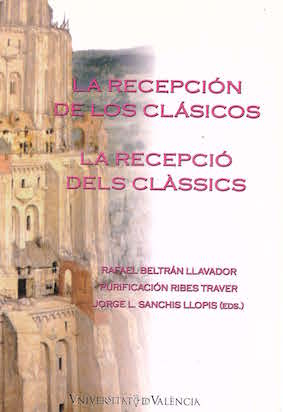La derrota de los pedantes (1789) de Leandro Fernández de Moratín y la difusión del Neoclasicismo en España
DOI:
https://doi.org/10.7203/qf-elit.v10i0.5106Keywords:
Moratín, Neoclassicism, satire Abstract
Abstract
Luzán’s Poética (1737) expresses the criteria of the new Spanish Classicism on a theoretical level. By the end of the eighteenth century, Leandro Fernández de Moratín assumed the responsibility of publicizing the principles of Neoclassicism as well as denouncing the extremes of the Baroque aesthetic through his literary works. Lección poética (1782), La derrota de los pedantes (1789) and La comedia nueva o el café were written to explain the theoretical and dramatic discourse of Neoclassicism: the universal concept of rhetoric and its connection to Renaissance models, rationality vs. the extravagances of the Baroque period, the educational function of art and its submission to rules. La derrota de los pedantes is a fictional satire which adopts the convention of the journey to Mount Parnassus. A group of versemongers and poetasters try to break into the place, but they are defeated by Apollo’s friends. Fernández de Moratín sketches the personality of the degraded and negative hero, an icon of aesthetic anarchy and traditional codes. After this description the author contrasts it with the model of Neoclassic virtue proposed by Apollo.
 Downloads
Downloads
Downloads
Published
How to Cite
-
Abstract4506
-
PDF (Español)1140
Issue
Section
License
 Este obra está bajo una licencia de Creative Commons Reconocimiento-NoComercial-SinObraDerivada 4.0 Internacional.
Este obra está bajo una licencia de Creative Commons Reconocimiento-NoComercial-SinObraDerivada 4.0 Internacional.
Authors who publish with this journal agree to the following terms:
- Authors retain copyright and grant the journal right of first publication with the work simultaneously licensed under a Creative Commons Attribution License that allows others to share the work with an acknowledgement of the work's authorship and initial publication in this journal.
- Authors are able to enter into separate, additional contractual arrangements for the non-exclusive distribution of the journal's published version of the work (e.g., post it to an institutional repository or publish it in a book), with an acknowledgement of its initial publication in this journal.
- Authors are permitted and encouraged to post their work online (e.g., in institutional repositories or on their website) prior to and during the submission process, as it can lead to productive exchanges, as well as earlier and greater citation of published work (See The Effect of Open Access).




